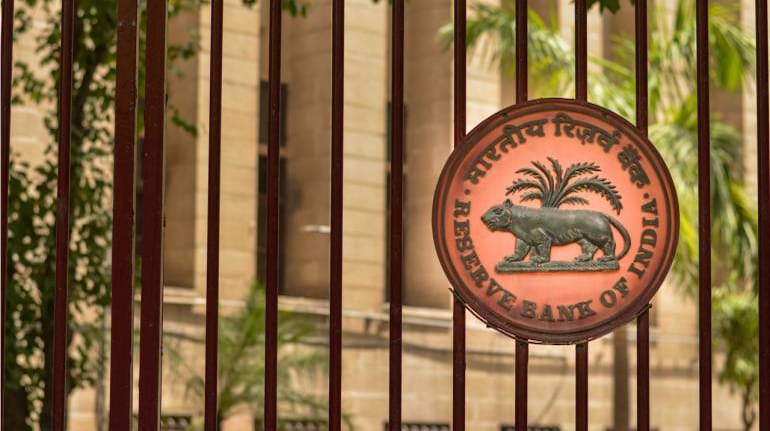



As expected, the Reserve Bank of India has left interest rates unchanged and maintained an accommodative stance, saying that the economy faces a renewed threat to growth due to the resurgence of coronavirus cases. Real estate experts said that with the country witnessing a second wave with partial lockdowns being imposed across different States and cities, the apex bank has sought to maintain the status quo rather than get ‘adventurous’.
The extension of the Targeted Long Term Repo Operations scheme by six months is also expected to ensure adequate liquidity in the form of housing finance to real estate developers and provide stability in the Covid-19 era, the experts said.
“The resurgence of the pandemic and resultant concerns of its impact on the economy and businesses demanded a resilient approach. The Central bank has responded by taking an accommodative stance, kept the repo rates unchanged. The health of the economy has now become more contingent on the progress of vaccination and control of the pandemic. In such a scenario, holding the repo rates at 4 percent is likely to cushion the impact on the economy due to intermittent and regional lockdowns,” said Samantak Das, Chief Economist and Head of Research & REIS, JLL India.
Clear signs of demand
Demand for residential real estate has revived as homebuyers took advantage of the low mortgage rates along with realistic pricing and various freebies and options rendered by developers. Residential sales in Q1 (January-March) 2021 recovered to more than 90 percent of the volumes witnessed during pre-Covid times across the top seven cities.
“The sustained growth in sales presents clear signs of demand and buyer confidence coming back to the market. The recent surge in the spread of the pandemic is likely to impact homebuying sentiment for a few months. However, we believe that overall residential sales are likely to surpass pre-Covid levels in the coming quarters,” he said.
While the RBI's decision to maintain the status quo on repo rates in the first MPC meeting of this fiscal year was expected, the extension of the TLTRO scheme by six months will ensure adequate liquidity in the form of housing finance to real estate developers and provide added stability in the Covid era, said Deepak Goradia, President, CREDAI MCHI.
“The guidelines on inflation and growth trajectory have mostly remained unchanged despite the recent surge in input costs. Extending LTRO for six months translates into continued emphasis on maintaining balanced liquidity in the system and introducing a secondary market G-sec acquisition program 1.0 certainly clearly reflects the commitment to sustain growth momentum in the economy. Extension of Priority Sector lending for NBFC financing towards housing will augment the production outlay,” said Niranjan Hiranandani, National President, NAREDCO.
Rajani Sinha, Chief Economist and National Director, Knight Frank India, is of the opinion that the RBI has taken reassuring steps to infuse additional liquidity into the housing sector through increased financing to the National Housing Bank and extension of the priority sector tag for bank funding to NBFCs for housing loans.
RBI governor Shaktikanta Das on Wednesday (April 7) said the Monetary Policy Committee (MPC) had kept its estimate for economic growth unchanged at 10.5 per cent for the current fiscal year. The MPC saw inflation edging up to 5.2 per cent in the first half of the new fiscal year from 5 per cent in the January-March period and moderating to 4.4 per cent in Q3 of FY22.
In its Monetary Policy Report released on April 7, the RBI has said that the real estate sector gained steam from the third quarter, particularly in rural and semi-urban areas, as well as affordable segments in urban areas, on the back of lower mortgage rates, favourable pricing and slashed stamp duty rates across several states.
Residential launches see some momentum
In residential real estate, new launches registered y-o-y growth for the first time in eight quarters in Q3:2020-21 while the inventory overhang moderated to an average of 55 months in Q3 from 73 months in Q2. Growth in the RBI’s all-India housing price index remained unchanged in Q3 from the previous quarter.
Real estate and construction activity gained some momentum from Q3 — particularly in rural and semi-urban areas and affordable segments in urban areas — benefiting from lower mortgage rates, favourable pricing and a slash in stamp duty across several states, it said.
This is the fifth time in a row that the Central bank has tried to maintain an accommodative stance.
“Considering that real estate forms the backbone of several other sectors, we urge the government to introduce measures that truly uplift the sector, such as granting of industry status, allowing FDI in RTMI projects, and extending tax benefits from affordable to mid housing,” said Sanjay Dutt, MD and CEO, Tata Realty and Infrastructure Limited.
Discover the latest Business News, Sensex, and Nifty updates. Obtain Personal Finance insights, tax queries, and expert opinions on Moneycontrol or download the Moneycontrol App to stay updated!
Find the best of Al News in one place, specially curated for you every weekend.
Stay on top of the latest tech trends and biggest startup news.